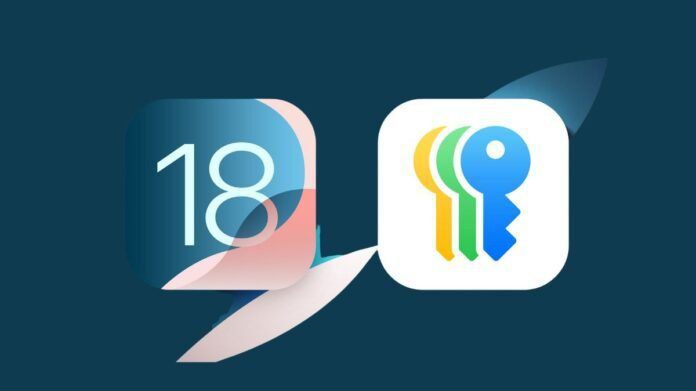Apple introduces passwords app
The updated Passwords app in iOS 18 is a major step forward for Apple’s ongoing goal of improving security while streamlining the user experience. With this new strategy, Apple users can still anticipate the same high standards of privacy while also benefiting from improved password management, streamlined login procedures, and better security measures. Examining iOS 18’s main features, usability, security improvements, and how it stacks up against alternative password solutions, this article will examine Apple’s most recent attempts to streamline password management and security.
Overview: The Mystery of the Password
iOS 18 passwords app
Though they are one of its weakest points, passwords have long served as the foundation of digital security. A significant security risk is created when users reuse the same password across several services since they frequently find it difficult to remember multiple complicated passwords. iCloud Keychain and the Passwords app in iOS 18 are two of Apple’s recent efforts to address the problems caused by passwords. The company was made aware of these difficulties in the past.
Built with a more intuitive UI, biometric authentication built in, and seamless cross-device syncing, the Passwords app in iOS 18 is an improved version that builds on earlier advances. In some circumstances, Apple’s method can completely replace traditional passwords, as it not only streamlines password administration but also integrates emerging technologies like passkeys. With iOS 18, Apple ensures that consumers can enjoy convenience without compromising security by providing a comprehensive solution to the password dilemma.
Important Characteristics of the iOS 18 Passwords App
In order to enhance user experience and security, the Passwords app in iOS 18 has a number of new features. These characteristics consist of:
Consolidated Password Administration
Using iCloud Keychain and additional stored passwords from apps and browsers, the new Passwords app centralizes all of your login information in one location. Users can simply access, manage, and update all of their passwords on various devices, including Mac, iPad, and iPhone, thanks to this.
The Future of Login with Passkeys
Passkeys, which seek to do away with the necessity for conventional passwords completely, are one of the most noteworthy features in iOS 18. Passkeys use public-private key pairs to authenticate users without passwords. Face ID or Touch ID protects passkeys, which are stored in the Secure Enclave on the user’s device. Since passkeys can’t be phished or published online, they’re more secure.
Better Authentication Through Biometrics
App and website secure login is made simpler and faster with the Passwords app’s integration with Apple’s biometric authentication methods, such as Face ID and Touch ID. Not only does this integration guarantee that only authorized users can access user credentials, but it also removes the need for complicated password entry.
Passwords That Automatically Adopt
When creating new accounts, iOS 18 has the capability to automatically suggest strong, one-of-a-kind passwords as part of Apple’s ongoing effort to promote excellent security practices. Passwords app users can change the generated passwords to their liking, and these ideas are safely saved inside.
Exchange of Passwords
With iCloud Family Sharing, iOS 18 brings secure password sharing. Without disclosing other private information, users can communicate some passwords to dependable family members. Families that share subscriptions or accounts may find this option especially helpful.
Handled Two-Factor Authentication (2FA) Integration
Two-factor authentication (2FA) codes may now be easily managed by the app. When signing in, users who depend on this extra security layer will have less friction because it can create 2FA codes for websites and apps that enable it. These codes will automatically fill in.
Security Recommendations and Auditing Passwords
In order to verify that saved passwords match databases of known compromised credentials, Apple has improved the password security auditing capability. Users can change their passwords and receive advice from the Passwords app if any of their credentials have been compromised. Not only that, but users receive recommendations for better, more secure passwords to use in place of weak or repurposed ones.
Apple passwords app
With iOS 18, Apple continues to prioritize security and privacy. A number of security measures are incorporated into the Passwords app to guarantee that user credentials are kept secret and safe.
Encryption at the Device
End-to-end encryption is used to protect all passkeys and passwords, which are kept locally on the device. As a result, consumers may be as private as possible because not even Apple has access to their credentials.
Protected Area
A specific hardware element in Apple products called the Secure Enclave is where passkeys are kept safe. Apple makes sure that their authentication data is safe from hackers and malware by storing passkeys here and limiting access to just the user.
Not using a centralized database
By keeping critical information decentralized, Apple’s solution differs from standard password managers that store user data on cloud servers. The iCloud allows passwords to be synchronized between devices, but they stay encrypted and can only be unlocked on machines that the user has designated as trusted. Mass data breaches, a frequent weakness for password management services, are significantly less likely as a result.
Secure Biometrics
Using passkeys and accessing the Passwords app requires biometric authentication, which adds an additional degree of protection. You would still need to enable Face ID or Touch ID to view or use your passwords even if someone were to physically reach your device.
Summary: Using iOS 18 to Simplify Passwords
Apple has committed to enhancing security and user experience once more with the release of the Passwords app in iOS 18. Apple is spearheading the shift away from passwords and toward a future where they are not only easier to manage but may someday become obsolete with its advanced features like passkeys, integrated 2FA, and secure password sharing.

